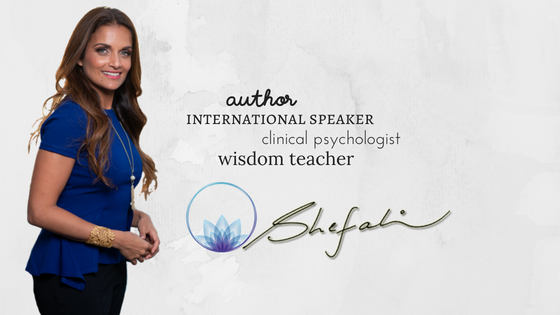Meltdowns are tough. Tantrums are treacherous.
They are downright life-sucking. They sneak on you without notice and they stay like the plague.
Once they arrive, there is no switch to turn them off. It?s like the aliens have descended and abducted your child?s brain. One moment your toddler, pre teen or teen is the sweetest thing, all cuddly in your arms and whoa, what happened – what did you miss? – you blinked and the torrents descended. Your child transforms from human to monster, from sweetness to absolute wickedness. Arms flailing, tears pouring, voice shrieking – should I say more???
Want More Conscious Tools & Strategies? CLICK HERE
Every parent just wants to know one thing: ?how can I get my kid to stop??
In our confusion, we say the wrong things to our children. Without realizing we worsen?the situation, instead of mitigating it. In all my years as a parent and clinical psychologist, these are the three common phrases parents say that not only exacerbates the tantrum but also creates a disconnect between parent and child.
MISTAKE #1: ?Use Your Words?
New-age parents especially, think that they are being highly evolved when they tell their kids to use their words. This is the absolute wrong thing to tell a kid who is in the middle of a brain freeze and emotional flood. The last thing they can do at these moments is use their literacy skills. This is especially true for kids under the age of 6. When we tell them to use their words, we frustrate them to no end because this is not the mental state they are naturally in. They feel controlled by us even more and this causes them to kick and scream even louder.
WHAT TO DO INSTEAD: As your kid is overwhelmed by their big feelings, it is crucial that we enter their presence with a state of detached, yet calm, energy. We need to show them that we are there for them, without controlling them or domineering over them. Like a tall mountain, we need to show them that we can withstand their torrential thunders and their gusty winds. The most important thing we can do is move toward them with stillness, calmness and full-on presence, and try to hold them close to us if they let us. When they see us relate to them with great empathy in our eyes, they will naturally absorb our strong, yet silent, caring and slowly begin to find their way out of the dungeon themselves. The moment they sense us controlling them, however, the quicker they will resist and pump their tantrum with more gusto.

MISTAKE #2:??What?s wrong? What happened? Why are you acting this way??
Again, in an attempt to connect to our kids, we try to use questions to get to our kids? heart. We want to show them that we care and are concerned about their well-being. In our desire to come across as loving, we ask them a thousand questions, probing, inquisitive and curious. We think this is going to help our kids open up. What this does instead is cause them to clam up even more. When our kids? are showing their upset through their screams, tears and body-language, it?s as if they are shouting at us, ?Can?t you see that I am mad/sad/hurt/betrayed/guilty/scared??? WHY ARE YOU ASKING ME TO SAY WHY AND HOW??? Can?t you just be here with me and allow me to express my pain??
WHAT TO DO INSTEAD: Remember this, every human just wants to be seen and heard. We want to be accepted for who we are and for whatever state we are in. We don?t want to have to rationalize and justify our feelings to anyone. We just want to feel. Pure and simple. This is especially true with kids. The biggest gift parents can give their children is to allow them a space to express their feelings without putting words, thought, explanations or justifications onto it. In this way, children learn to be non-threatened by big feelings and simply roll with them as they arise in their beings. Feelings in and feelings out. Allowing kids to be vessels of their own feelings and not force them to deny, shut-down or explain them away is one of the most valuable gifts we can give them.
MISTAKE #3:??Stop it right now. You are going to get a consequence if you don?t.?
If you have read my first and second books, The Conscious Parent and Out of Control, you probably already know my thoughts around punishments, threats and time-outs for kids. When we tell our kids to stop their meltdowns, it?s akin to us putting a burger in our mouth and being told not to chew on it. It?s virtually impossible. When our kids feel ashamed of their big feelings, they absorb the self-image that they are ?weak,? and ?immature.? They equate this to being lesser-than and inadequate. These are not positive messages for them to internalize at all!
WHAT TO DO INSTEAD: When we emit the energy that we are unafraid of our children?s big feelings, we communicate to them that they too have nothing to be afraid of. When they see us unfazed by their feelings, they learn to be the same as well. It is not our job to control when and how our children have big feelings. Our job is only to support and guide them through the big waves and help them come to the other side feeling whole and validated. Once we teach them how to swim through the waters of their feelings, we empower them to do the same when they are alone. Instead of punishing them, we need to empathize with them and relate to them through our body-language and soft, soothing tone of voice. We need to draw them close to us and stroke their hair. We need to calm them through body-rubs and gentle love. This is what will allow them to eventually let their feelings wash through and subside.
Want More Conscious Tools & Strategies? CLICK HERE



